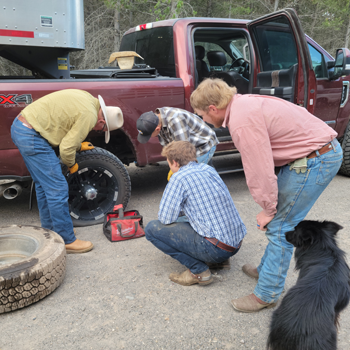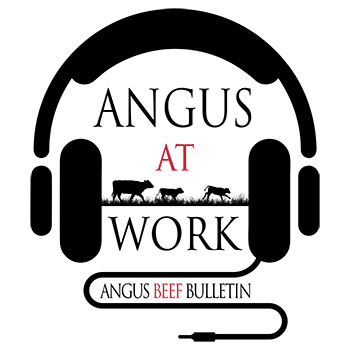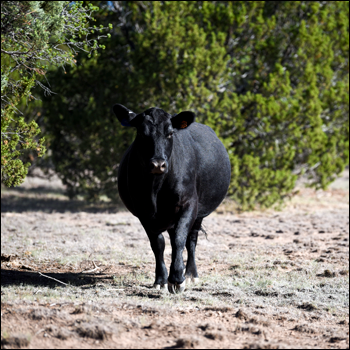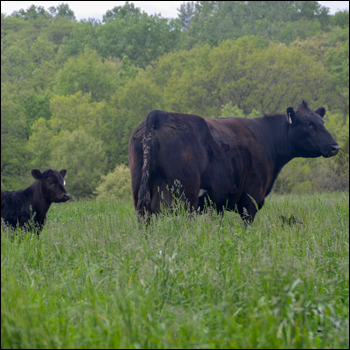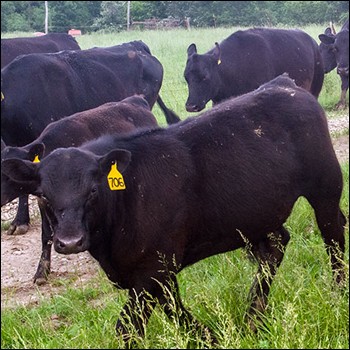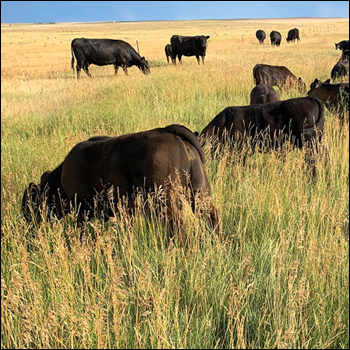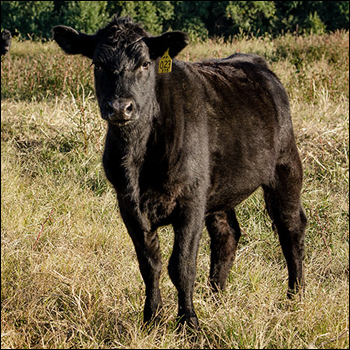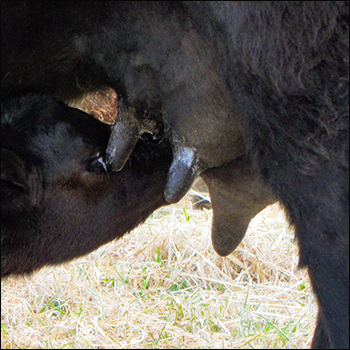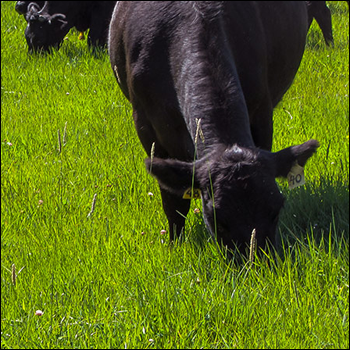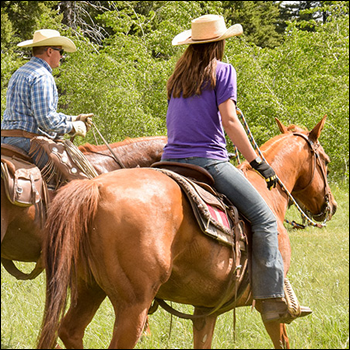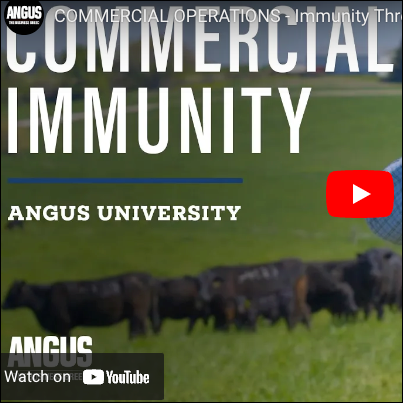News & Notes
Industry tidbits from around the country.
This month’s column includes insight on a new American Angus Association regional manager, industry reactions to agricultural policies, and an education opportunity.
Association names new regional manager
The American Angus Association welcomes Austin Flynn of Porterville, Calif., as the regional manager for Arizona, California, Nevada and Utah. Flynn brings several years of experience in cattle management and production practices.
“I admire the Angus breed’s reputation as an industry leader and continuous push to help commercial cattlemen improve their product by adding value to their calves,” Flynn says. “I look forward to traveling throughout the region to meet the members, learn about their diverse operations and help provide Association services.”
Flynn began his role in region 11 on June 13 and will soon hit the road attending Angus events. In the regional manager position, Flynn will work with breeders to promote Angus cattle, improve management practices, inform cattlemen and women about Association programs and services, and help locate Angus seedstock. He can also advise producers on marketing opportunities available through the Association, including advertising in the Angus Journal, Angus Beef Bulletin and other avenues.
Flynn comes to the Association from EZ Angus Ranch, where he served as the assistant manager, overseeing the cow-calf herd, breeding details and preparing the cattle and video marketing tools for sales. Prior to his position at EZ, he worked for both Basin Angus Ranch and Perry Show Cattle, where he gained relevant skills in seedstock production and customer relations.
Contact Flynn at aflynn@angus.org or 559-361-9701.
Response to passage of the Ocean Shipping Reform Act
The House of Representatives passed S.3580, advancing the Ocean Shipping Reform Act for President Biden’s approval.
In a news release following the passage, the U.S. Meat Export Federation (USMEF) thanked both houses of Congress for their strong bipartisan support of the legislation.
“In these times of rising input costs, it has never been more important to maximize the value of our agricultural products, and the best way to do that is to ensure access to the international marketplace,” stated USMEF President and CEO Dan Halstrom. “This legislation takes important steps forward in improving the shipping services available to U.S. exporters.”
In response to the U.S. Senate’s passage of the Ocean Shipping Reform Act, Ted McKinney, CEO of the National Association of State Departments of Agriculture, noted: “Undue burden to our food system and supply chain has been lessened today with the passage of the Ocean Shipping Reform Act, which maintains fair ocean carrier practices. Today’s actions couldn’t have come at a more needed time for the United States and the world as changes from the Ocean Shipping Reform Act will enable more U.S. agricultural products to reach the global marketplace.”
NCBA commends signing of U.S.-Japan beef export agreement
On June 2 the National Cattlemen’s Beef Association (NCBA) praised the signing of an agreement between the United States and Japan to increase the Beef Safeguard Trigger level under the U.S.-Japan Trade Agreement.
“The agreement signed today underscores the importance of the mutually beneficial relationship between U.S. cattle producers and Japanese consumers, and we are hopeful that the improved safeguard will provide greater certainty for all segments of the supply chain. NCBA thanks Ambassador Tai for her continued efforts to reduce trade barriers and expand export opportunities for American cattle producers,” says Kent Bacus, NCBA senior director of international trade and market access.
In March 2021, Japan and the United States entered negotiations after record-setting beef exports triggered the safeguard provision of the U.S.-Japan Trade Agreement. The increase in the Beef Safeguard Trigger level will allow American producers to continue exporting high-quality beef to meet Japanese consumer demand.
Japan is a top export market for U.S. beef, accounting for more than $2.3 billion in sales in 2021.
Cattle industry fights controversial SEC climate rule
On June 17 NCBA filed comments on the U.S. Securities and Exchange Commission’s (SEC) controversial proposed greenhouse gas disclosure rule. The rule would require publicly traded companies to disclose their direct (scope 1), energy/electricity consumption (scope 2), and supply chain emissions (scope 3), creating a burden on cattle producers who supply beef to publicly traded processors, restaurants and retailers.
“With cattle producers facing record inflation, rising input costs and labor shortages, another bureaucratic rule from Washington is a burden we cannot afford,” said NCBA President Don Schiefelbein, a cattle producer from Kimball, Minn. “Policymakers should be focused on lowering costs and solving the real problems facing farmers and ranchers, not creating more complex rules that require a team of lawyers to understand.”
While the proposed rule is aimed at public companies, mandating the disclosure of scope 3 emissions would place a burden on cattle producers who supply beef to public entities. Additionally, the federal government has acknowledged that accurately calculating emissions on the farm or ranch level is impossible, while industry-wide metrics are already collected by the Environmental Protection Agency (EPA) and USDA at a level that should satisfy federal regulators.
“Cattle farmers and ranchers are America’s original conservationists. Thanks to decades of innovation and continuous improvement, cattle account for just 2% of overall U.S. greenhouse gas emissions,” said NCBA Environmental Counsel Mary-Thomas Hart. “Cattle producers have a proven track record of sustainable practices and should not be penalized with overreaching rules from an agency with no expertise in agriculture.”
In addition to submitting technical comments, individual cattle producers submitted more than 6,700 letters to the commissioners of the SEC and members of Congress to inform them of the widespread unintended sequences this rule would have on the cattle and beef industry.
View the comments filed by NCBA here https://bit.ly/07EXTRANN02.
U.S. House passes bill that will provide fairness for farmers and lower prices for consumers
Passed by a vote of 221 to 204, the Lower Food and Fuel Costs Act (H.R. 7606) includes several provisions supported by National Farmers Union (NFU), namely the Meat and Poultry Special Investigator Act, which gives USDA further capacity and additional direction to investigate anti-competitive practices in the highly consolidated meat industry.
Additionally, the Lower Food and Fuel Costs Act includes measures to expand independent meat processing and promote biofuels infrastructure and adoption. These measures will expand opportunities for farmers while driving down costs for consumers.
Read more here https://bit.ly/07EXTRANN03.
NCBA disappointed in House passage of Special Investigator Bill
On June 16 NCBA expressed strong disappointment in the House’s passage of the Lower Food and Fuel Costs Act, which incorporates the Meat and Poultry Special Investigator Act.
The special investigator section would create a new position at the USDA to investigate broad “anticompetitive” matters. According to NCBA, this position duplicates the work of numerous federal investigative agencies, including the USDA Packers and Stockyards Division, Department of Justice, Federal Bureau of Investigation, Federal Trade Commission, and Department of Homeland Security — all of which have existing authority, staff and budget to investigate anticompetitive actions.
Unfunded, the bill will divert critical resources away from the Agricultural Marketing Service (AMS) of USDA at the expense of critical programs producers rely on like market data reporting, meat grading, and the Cattle Contract Library pilot program, NCBA said in an official news release.
Cattle producers share WOTUS perspective at EPA roundtable
On June 6 cattle producers at a roundtable organized by the Kansas Livestock Association (KLA) voiced their concerns with the EPA’s and Army Corps of Engineers’ ongoing Waters of the U.S. (WOTUS) rulemaking attempt.
This roundtable is one of 10 accepted by the EPA and Army Corps. In July 2021, the EPA announced that rather than facilitate public engagement — the typical course of action for major rulemakings — the agency would instead ask private organizations to entirely plan and propose a roundtable with representatives from agriculture, conservation groups, developers, water and wastewater managers, industry, Tribal leadership, environmental justice groups, and state and local governments. KLA went through the arduous process of planning a roundtable to ensure that the voices of cattle producers were heard.
In addition to the roundtables, NCBA has engaged on WOTUS by submitting technical comments on the Biden administration’s proposed phase one WOTUS rule and filing an amicus brief in the case Sackett v. EPA, a challenge to the EPA’s authority under the Clean Water Act. NCBA has called for the EPA to pause WOTUS rulemaking until the case is decided.
Watch a recording of the roundtable at https://bit.ly/07EXTRANN04.
44 Farms International Beef Cattle Academy
Now open, applications are due Aug. 13 for the 44 Farms International Beef Cattle Academy (IBCA) 2022-2023 online certification program.
The academy begins in September 2022 and continues through August 2023. The program consists of seven courses with nearly 30 learning hours per course. Classes are taught online with prerecorded lectures. Course topics include:
- Cattle welfare and behavior
- Forage production and utilization
- Nutritional management and requirements
- Reproductive physiology and management
- Breeding and genetics
- Immunology and herd health management
- Beef quality and safety
In addition to the prerecorded lectures, there are weekly interactive sessions for students and instructors. Following online coursework, the academy typically concludes with an optional experiential learning period and graduation ceremony in College Station, Texas.
All involved in the beef cattle industry are eligible to apply. The IBCA’s online learning format allows anyone from across the globe to participate. Class size for the prestigious IBCA is limited to offer an exclusive and customized learning experience.
Read more here https://bit.ly/07EXTRANN05.
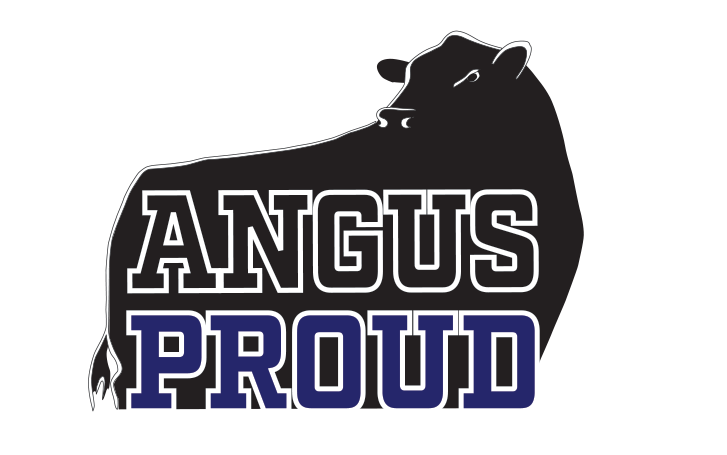
Angus Proud
In this Angus Proud series, Editorial Intern Jessica Wesson provides insights into how producers across the country use Angus genetics in their respective environments.
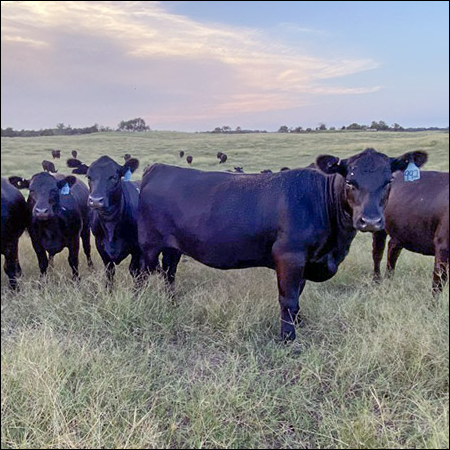 Angus Proud: Scott Sproul
Angus Proud: Scott Sproul
Oklahoma operation learned wisdom of moving calving season to better suit their marketing needs.
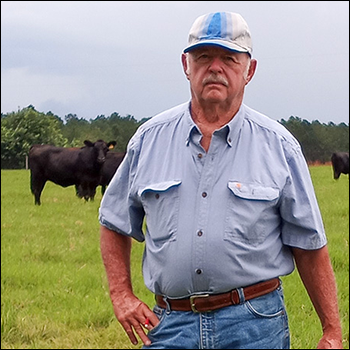 Angus Proud: Bubba Crosby
Angus Proud: Bubba Crosby
Fall-calving Georgia herd uses quality and co-ops to market calves.
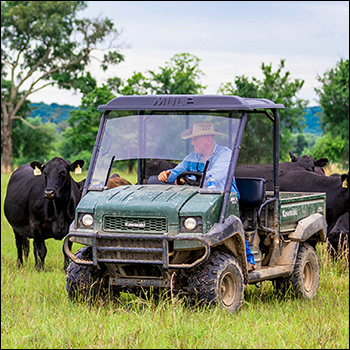 Angus Proud: Jim Moore
Angus Proud: Jim Moore
Arkansas operation retains ownership through feeding and values carcass data.
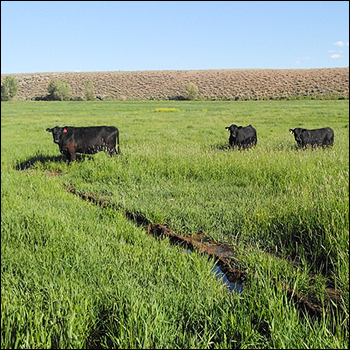 Angus Proud: Stephen Shiner
Angus Proud: Stephen Shiner
Idaho operation rotates pastures in summer and raises crops for winter.
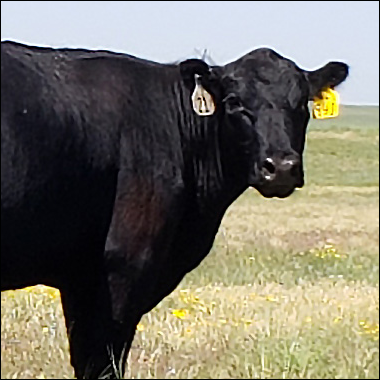 Angus Proud: Brian Nusbaum
Angus Proud: Brian Nusbaum
Angus cattle fit cattleman’s marketing goals and helped him set out on his own.
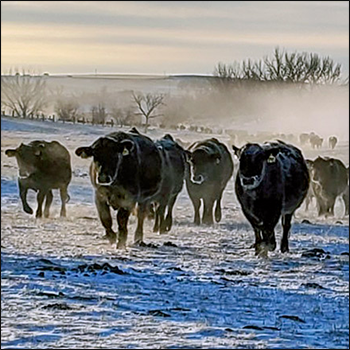 Angus Proud: Les Shaw
Angus Proud: Les Shaw
South Dakota operation manages winter with preparation and bull selection.
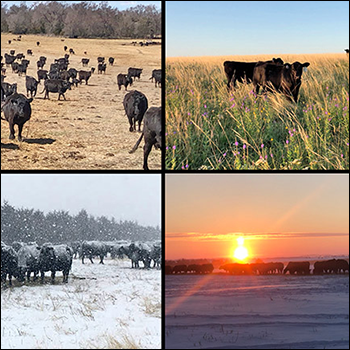 Angus Proud: Jeremy Stevens
Angus Proud: Jeremy Stevens
Nebraska operation is self-sufficient for feedstuffs despite sandy soil.
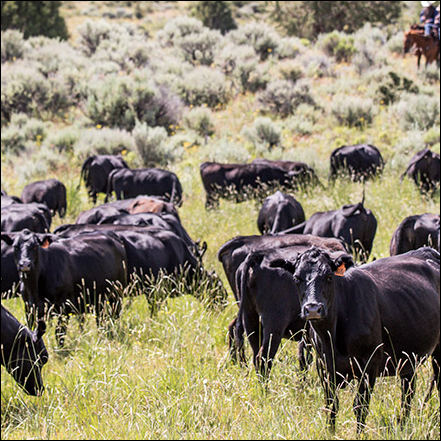 Angus Proud: Dave Rutan
Angus Proud: Dave Rutan
Angus breeder gets the most out of his bull investment by partnering with opposite calving-season operation.
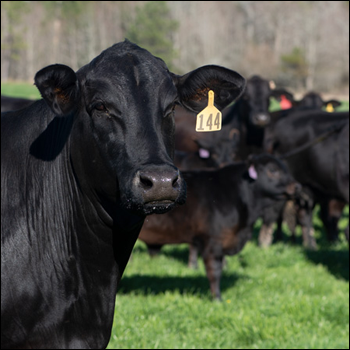 Angus Proud: Nickey Smith
Angus Proud: Nickey Smith
AngusLink helps Louisiana cattleman gain more for his calves.
 Angus Proud: Mike Moss
Angus Proud: Mike Moss
Operation’s nontraditional start lends to creativity and conservation efforts.
